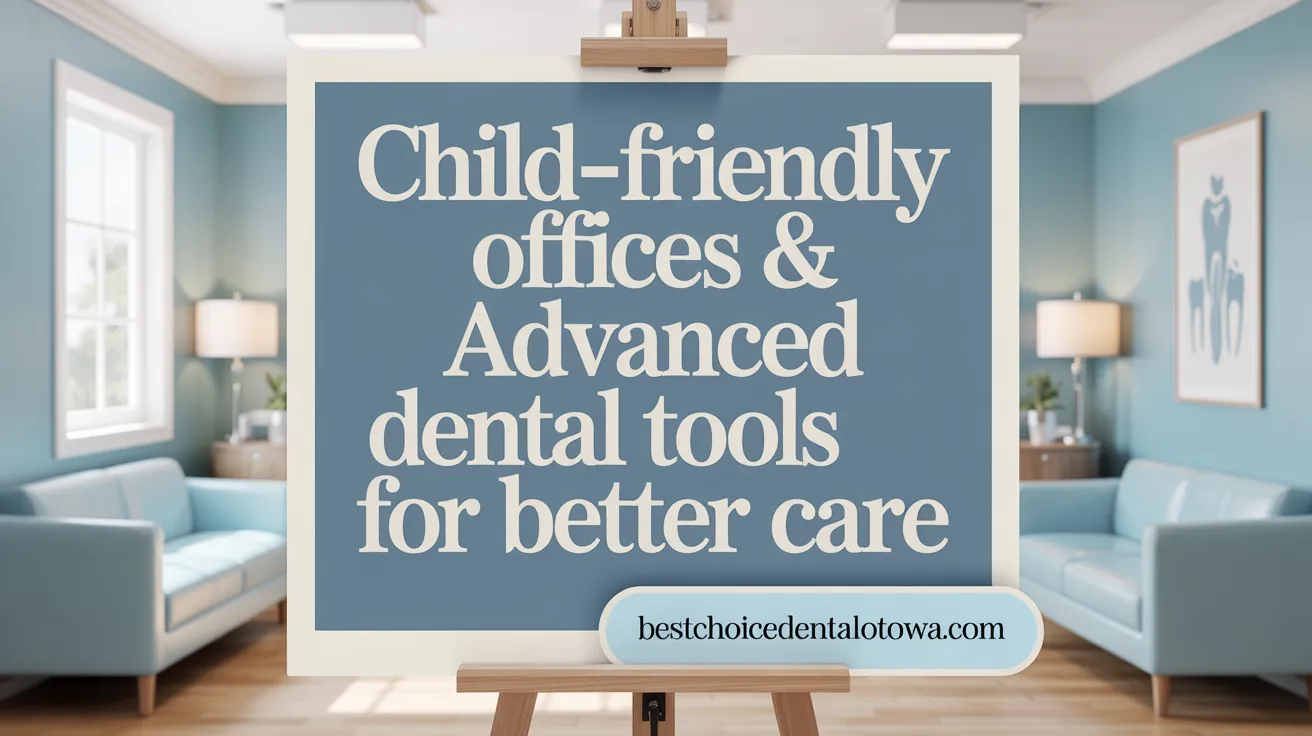Why Choosing the Right Family Dentist Matters
Selecting the right family dentist is a crucial step toward ensuring the oral health of every family member—from toddlers to seniors. A good family dentist offers comprehensive care tailored to individual needs, fosters a welcoming environment, and supports preventive health practices. This article will guide you through the essential steps to choose a family dentist who meets your unique needs, making dental visits efficient, comfortable, and health-focused.
Assess Credentials and Range of Services
What qualifications and certifications should a good family dentist have?
A good family dentist should have graduated from a reputable dental school and hold a valid license, ensuring they meet essential standards of professional competence. Beyond these basic credentials, ongoing education and memberships in professional organizations like the American Dental Association (ADA) help dentists stay current with the latest advancements. Board certifications specializing in areas such as pediatric dentistry or orthodontics further demonstrate expertise and commitment to specialized care.
Why is it important that a family dentist offers a broad range of services?
A family dentist who provides a comprehensive range of services—including preventive cleanings, restorative procedures, cosmetic treatments, emergency care, and pediatric dentistry—can accommodate the entire family's dental needs in one convenient location. This approach simplifies scheduling appointments and maintains continuity of care across all age groups, from toddlers to seniors. It also ensures that specialized treatments, such as sealants for children or gum disease management for adults, are readily accessible.
Pediatric and Specialized Care
Experienced family dentists often have additional training to manage the unique needs of children, including creating a welcoming environment designed to reduce dental anxiety. Specialized care can also extend to orthodontic consultations, implant placements, and management of oral health issues for seniors or patients with unique medical conditions. Learn more about specialized pediatric dental care and orthodontic consultations.
Continuing Education and Board Certifications
Continuing education is vital for dentists to keep up with technological advances such as digital X-rays, laser treatments, and innovations in dental materials. Board certifications and regular training sessions signal a dentist's dedication to maintaining high-quality care standards.
In summary, verifying a family dentist's qualifications, and the breadth of services they offer ensures comprehensive, expert, and convenient dental care for every member of your family.
Evaluate Convenience and Accessibility
How do location and office hours influence the choice of a family dentist?
Selecting a family dentist close to your home or workplace significantly enhances convenience. This proximity makes attending regular appointments less cumbersome, helping families keep up with routine dental visits which are essential for maintaining oral health.
Office hours that include evenings and weekends provide flexibility for families with busy schedules. This accommodates school, work commitments, and other activities, ultimately encouraging consistent dental care without disrupting daily routines.
Why is emergency dental care availability important in choosing a family dentist?
Access to emergency dental care, including same-day and after-hours appointments, is crucial. It allows for timely intervention during urgent dental issues like severe toothaches or injuries, which can prevent worsening conditions and alleviate pain efficiently.
Flexible scheduling options
Modern family dental practices often offer flexible scheduling, such as online booking and extended hours. This adaptability suits diverse family needs and reduces the stress of attending appointments, contributing to better adherence to dental care plans.
Choosing a family dentist who prioritizes location convenience, provides extended office hours, and offers emergency access ensures your family receives comprehensive and accessible dental care.
Consider the Dental Office Environment and Technology

Why is a welcoming, child-friendly office important?
A child-friendly dental office plays a crucial role in alleviating dental anxiety, especially among young patients. Features such as toys, colorful decor, TVs, and empathetic staff create a comfortable atmosphere that helps children feel at ease. This positive environment encourages regular visits and fosters good dental habits from an early age.
How does modern dental technology contribute to dental care?
Utilizing modern dental technology like digital X-rays, intraoral cameras, and laser dentistry significantly enhances the quality of care. These tools enable quicker, more precise diagnoses and allow for less invasive treatments. Patients benefit from reduced discomfort and shorter procedures, leading to improved overall outcomes.
Additional Factors: Office Cleanliness and Staff Professionalism
Maintaining a clean and organized office is essential to ensure patient health and safety. Friendly and professional staff further contribute to a positive experience by providing courteous service and effective communication. Together, these factors increase patient comfort and help reduce anxieties associated with dental visits.
Creating a dental practice environment that combines child-friendly elements with advanced technology and professional care establishes trust and comfort. This approach supports regular dental attendance and promotes long-term oral health for all family members.
Review Costs, Insurance, and Payment Options

Why is it important to verify insurance acceptance before choosing a family dentist?
Confirming that a family dentist accepts your dental insurance is crucial to minimizing out-of-pocket expenses. Dental care can be costly, and not all dentists accept every insurance plan. By verifying dental office insurance policies and insurance and payment options, families can avoid unexpected costs and ensure treatment affordability.
What payment options should a family dentist offer?
A family dentist should provide a variety of payment and financing options at dentist to accommodate different financial situations. These include cash, credit card payments, acceptance of multiple insurance plans, in-house financing options, and membership programs. Such payment alternatives make dental care more accessible and convenient for families of all sizes.
Transparent pricing and clear communication about fees and payment plans also help reduce financial stress and allow families to plan their budgets effectively, as discussed in Family dentist payment options and Dental payment methods.
Financial Planning and Accessibility
Planning for dental care costs is essential for maintaining consistent oral health. Choosing a dental practice that offers flexible payment methods and insurance acceptance supports long-term dental care adherence and helps families avoid delaying necessary treatments due to financial concerns.
By considering insurance and payment options for dental care, transparent pricing, and diverse payment solutions, families can select a dentist who fits their needs and budget, ensuring reliable and continuous dental care.
Build Trust Through Communication and Patient Education

How does communication impact your relationship with a family dentist?
Clear and empathetic communication is foundational in building trust between a patient and their family dentist. When dentists take the time to listen carefully and explain procedures patiently, patients feel respected and truly understood. This approach is especially valuable for children and patients who experience dental anxiety, as it makes visits less intimidating and helps foster a sense of safety and comfort.
Effective communication also encourages patients to maintain consistent dental care routines, knowing they can openly discuss concerns or questions. This openness supports better management of oral health and long-term relationships based on mutual trust. For more on effective dentist communication, see these insights.
Why is patient education a key aspect of family dentistry?
Patient education is central to preventive dentistry. A family dentist will provide guidance on essential habits such as proper brushing and flossing techniques, the use of fluoride toothpaste, and the benefits of a balanced diet for oral health. Educating families about managing dental anxiety and the importance of regular checkups helps prevent more serious problems.
Through personalized education, patients gain knowledge that empowers them to take active roles in their oral health. This proactive approach can reduce the need for invasive treatments and enhances overall wellbeing for patients of all ages. Learn more about patient education by dentists and its benefits.
Handling Dental Anxiety and Building Personal Rapport
A family dentist who understands and addresses dental anxiety can make a significant difference. Techniques such as gentle communication, sedation options, and creating a welcoming office environment provide comforting experiences. Developing a personal rapport with patients makes dental visits predictable and less stressful. Explore approaches to managing dental anxiety and fostering patient comfort.
Why are personal rapport and reviews important?
Positive patient reviews and testimonials reflect the dentist's ability to connect well with their patients and provide quality care. A good rapport encourages regular attendance and openness, which are essential for ongoing oral health maintenance. Patients who feel confident in their dentist's communication and care approach are more likely to engage in recommended preventive practices. For tips on checking patient reviews and building dentist-patient rapport, see these resources.
By focusing on effective communication and comprehensive patient education, family dentists establish trusted relationships and promote lifelong healthy smiles.
Making an Informed Choice for Your Family’s Dental Health
Choosing the best family dentist involves a thoughtful evaluation of qualifications, services, convenience, office environment, financial options, and communication style. By considering these essential factors and utilizing personal recommendations, online reviews, and direct visits to dental offices, you can find a trusted partner dedicated to your family’s lifelong oral health. Remember, the right family dentist not only treats teeth but also builds relationships grounded in care, comfort, and education, ensuring your family’s smiles remain healthy for years to come.
